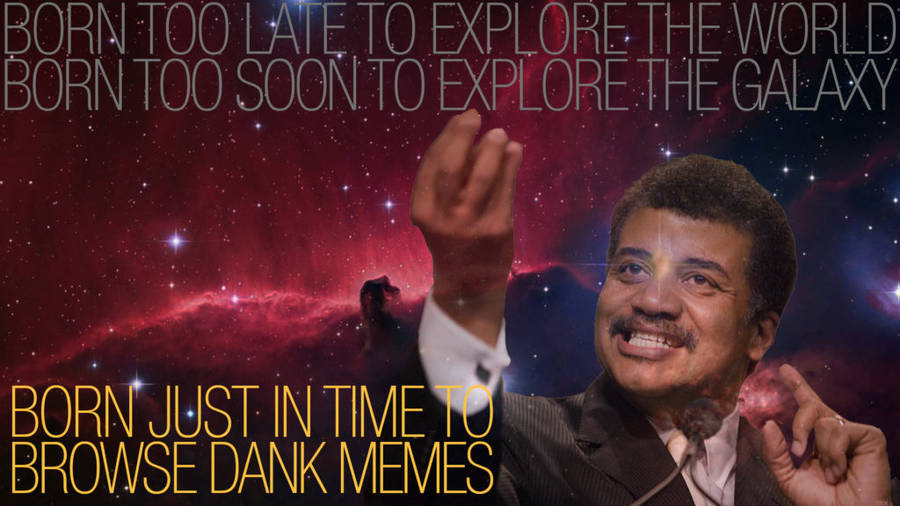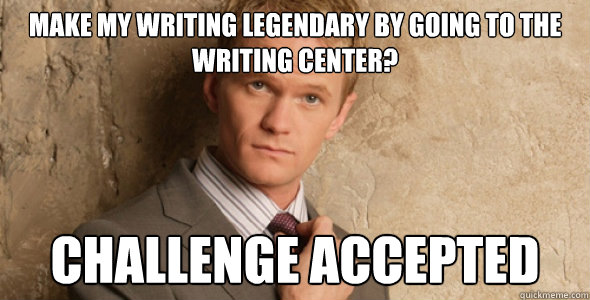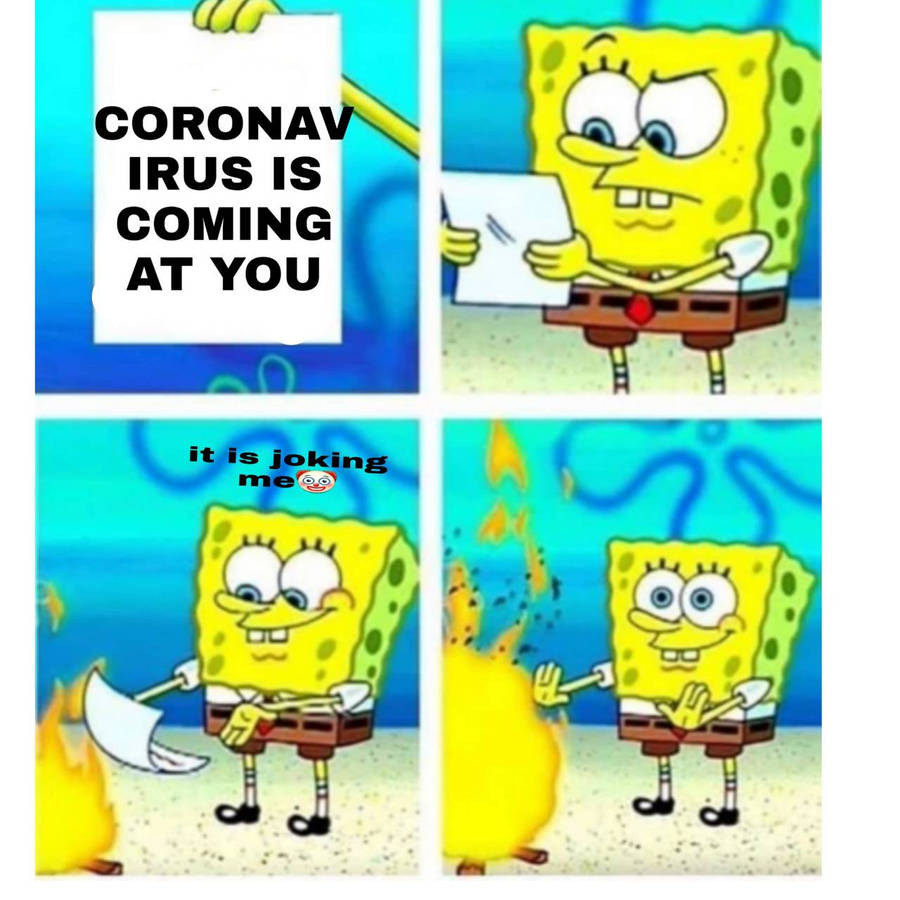 In addition, I have found that not pushing my own brainstorming methods is not as dependent upon my own tutoring strategies, but rather my response to what the writer comes to the session with. For example, my weekly writer came in after brainstorming through free-writing, so we went through what she wrote and highlighted connecting ideas and thoughts or examples that might support her thesis. As the writer said, "This session was especially helpful because I brought in a free write and Savannah helped me organize my ideas and highlight my main ideas." This strategy was actually something I have never done before but because I was able to adapt to the situation, I could meet her where she was. In the end, most tutoring strategies really depend on the tutoring situation.
In addition, I have found that not pushing my own brainstorming methods is not as dependent upon my own tutoring strategies, but rather my response to what the writer comes to the session with. For example, my weekly writer came in after brainstorming through free-writing, so we went through what she wrote and highlighted connecting ideas and thoughts or examples that might support her thesis. As the writer said, "This session was especially helpful because I brought in a free write and Savannah helped me organize my ideas and highlight my main ideas." This strategy was actually something I have never done before but because I was able to adapt to the situation, I could meet her where she was. In the end, most tutoring strategies really depend on the tutoring situation.Thursday, November 20, 2014
Week 12 Reflection
I was very excited to tutor a couple papers for Organic Chemistry in the past week. It was nice to read scientific papers that were not lab reports and focused more on an interesting chemistry topic; in this case, they had to choose a molecule or chemistry technology that changed the world. This assignment is fantastic for getting writers to develop their writing skills and explore a chemistry topic that they are really interested. It would be exciting to see more assignments like this coming out of the Natural Sciences. My first session for this paper centered around the writer's concerns about writing for the audience while answering the prompt that asked them to advocate for their compound to be included in a couple narrative non-fiction books. We decided to split up here paper into more distinct subsections so that the change in audience focus was apparent. In the tutor feedback the writer said, "She was able to answer my specific questions and help me work out the sections of my paper I was unsure about." I am glad I was able to help with certain topics that they were struggling with. I think it is very important in the beginning of the session to listen to the writer's own concerns about their paper or wherever they are in the writing process, and then give my response to their paper depending on what I see as high-order concerns. Another writer I worked with on the same paper said, "Best of all, she never told me what to do but rather encouraged me to think of a solution that works for me and my paper." this comment was nice to hear when I have been worrying about being too explicit or directive in my tutoring practices. It is good to know that this writer felt like they had the ownership of their paper in the session and that I was just acting as a writing coach, rather than teacher. In the future, I want to strive to help writers take ownership with their work, and my function as a tutor should be to encourage that and offer feedback.
 In addition, I have found that not pushing my own brainstorming methods is not as dependent upon my own tutoring strategies, but rather my response to what the writer comes to the session with. For example, my weekly writer came in after brainstorming through free-writing, so we went through what she wrote and highlighted connecting ideas and thoughts or examples that might support her thesis. As the writer said, "This session was especially helpful because I brought in a free write and Savannah helped me organize my ideas and highlight my main ideas." This strategy was actually something I have never done before but because I was able to adapt to the situation, I could meet her where she was. In the end, most tutoring strategies really depend on the tutoring situation.
In addition, I have found that not pushing my own brainstorming methods is not as dependent upon my own tutoring strategies, but rather my response to what the writer comes to the session with. For example, my weekly writer came in after brainstorming through free-writing, so we went through what she wrote and highlighted connecting ideas and thoughts or examples that might support her thesis. As the writer said, "This session was especially helpful because I brought in a free write and Savannah helped me organize my ideas and highlight my main ideas." This strategy was actually something I have never done before but because I was able to adapt to the situation, I could meet her where she was. In the end, most tutoring strategies really depend on the tutoring situation.
 In addition, I have found that not pushing my own brainstorming methods is not as dependent upon my own tutoring strategies, but rather my response to what the writer comes to the session with. For example, my weekly writer came in after brainstorming through free-writing, so we went through what she wrote and highlighted connecting ideas and thoughts or examples that might support her thesis. As the writer said, "This session was especially helpful because I brought in a free write and Savannah helped me organize my ideas and highlight my main ideas." This strategy was actually something I have never done before but because I was able to adapt to the situation, I could meet her where she was. In the end, most tutoring strategies really depend on the tutoring situation.
In addition, I have found that not pushing my own brainstorming methods is not as dependent upon my own tutoring strategies, but rather my response to what the writer comes to the session with. For example, my weekly writer came in after brainstorming through free-writing, so we went through what she wrote and highlighted connecting ideas and thoughts or examples that might support her thesis. As the writer said, "This session was especially helpful because I brought in a free write and Savannah helped me organize my ideas and highlight my main ideas." This strategy was actually something I have never done before but because I was able to adapt to the situation, I could meet her where she was. In the end, most tutoring strategies really depend on the tutoring situation.Tuesday, November 11, 2014
Another successful week
I have really been getting into my research this week, which has been very refreshing. I am really enjoying the process and I am realizing the amount I love conducting research could really stick with me for the rest of my life. I could definitely see myself doing research in the future--qualitative or quantitative. On another note, I have finished a second round of edits for Auspex and I am again realizing how interested I am in research and the writing research craft. I am beginning to see how instrumental the Writing Center has been in figuring out what I really enjoy doing.
Session Responses
My tutoring feedback this week has actually all been positive. I was not completely able to be conscious about my brainstorming tutoring methods, as I had planned last week. I think the strategies I use in a session really depend on the situation; yesterday, I had a session where I used a new method that I had never used before. The writer came in with a few free-written paragraphs and after she read the paper out loud we went through and highlighted sentences that could be part of a thesis and the broader paper. After doing this, we were able to develop a thesis and organize an outline. Another theme I am noticing in my tutoring feedback is effectively helping writers talk out their ideas by asking prompting questions. For a lot of people, verbally explaining their paper and ideas can really help at any process in the paper, whether it is for brainstorming, narrowing a topic, outlining, or clarifying ideas. I think for future sessions, I will continue to be cognizant about my tutoring strategies and when I apply them. I will push myself to ask questions like, "What about the session made me pick the tutoring strategy that I used?" and "What brainstorming strategies do I use most often?"
I included some more cat memes... Yay!


Session Responses
My tutoring feedback this week has actually all been positive. I was not completely able to be conscious about my brainstorming tutoring methods, as I had planned last week. I think the strategies I use in a session really depend on the situation; yesterday, I had a session where I used a new method that I had never used before. The writer came in with a few free-written paragraphs and after she read the paper out loud we went through and highlighted sentences that could be part of a thesis and the broader paper. After doing this, we were able to develop a thesis and organize an outline. Another theme I am noticing in my tutoring feedback is effectively helping writers talk out their ideas by asking prompting questions. For a lot of people, verbally explaining their paper and ideas can really help at any process in the paper, whether it is for brainstorming, narrowing a topic, outlining, or clarifying ideas. I think for future sessions, I will continue to be cognizant about my tutoring strategies and when I apply them. I will push myself to ask questions like, "What about the session made me pick the tutoring strategy that I used?" and "What brainstorming strategies do I use most often?"
I included some more cat memes... Yay!


Tuesday, November 4, 2014
Reflection 1
Since we have started the tutor feedback section on the session summaries, my feedback has been mostly positive. A lot of people comment on how I am helpful with brainstorming and organizing, including my weekly writers. As one writer said, "Although we rarely edit or write pieces in the meetings, I feel as though she is teaching me the importance of organizing my thoughts before I write." When I approach brainstorming and organization, I tend to use several different strategies depending on the writer's preferences. The methods include free writing, talking out ideas, and outlining. I am not totally sure about how I consciously decide what method to use, but I know it really depends on what the writers comes prepared with or what their preferences are. Often, I will give them several different choices for how we could proceed with the session and let them choose. I hope to focus more in the future on how I make these decisions and if I am pushing my own brainstorming methods.
Some of the constructive criticism I received included structuring the session using better time management. In the future, I could work on quickly planning out the sessions more efficiently based on high-order concerns. I also feel like I have trouble seeing the paper as a whole when I am just hearing someone reading their paper rather than reading it myself as they speak. Letting writers read the paper out loud helps them hear sentence-level issues, but I need to physically read the paper in order to see things as a whole and distinguish what the high-order and low-order concerns are.
Another writer told me not to be afraid to tell them what is wrong with the paper. I know one of my weaknesses is my lack of assertion and fear of hurting the writer's self confidence. Some writers feel like the tutor is sugar coating, and I think I need to be more aware of this when giving my feedback on a paper. I think this concept may be something I want to experiment with in the future while reflecting on my sessions.
Some of the constructive criticism I received included structuring the session using better time management. In the future, I could work on quickly planning out the sessions more efficiently based on high-order concerns. I also feel like I have trouble seeing the paper as a whole when I am just hearing someone reading their paper rather than reading it myself as they speak. Letting writers read the paper out loud helps them hear sentence-level issues, but I need to physically read the paper in order to see things as a whole and distinguish what the high-order and low-order concerns are.
Another writer told me not to be afraid to tell them what is wrong with the paper. I know one of my weaknesses is my lack of assertion and fear of hurting the writer's self confidence. Some writers feel like the tutor is sugar coating, and I think I need to be more aware of this when giving my feedback on a paper. I think this concept may be something I want to experiment with in the future while reflecting on my sessions.
Subscribe to:
Comments (Atom)




